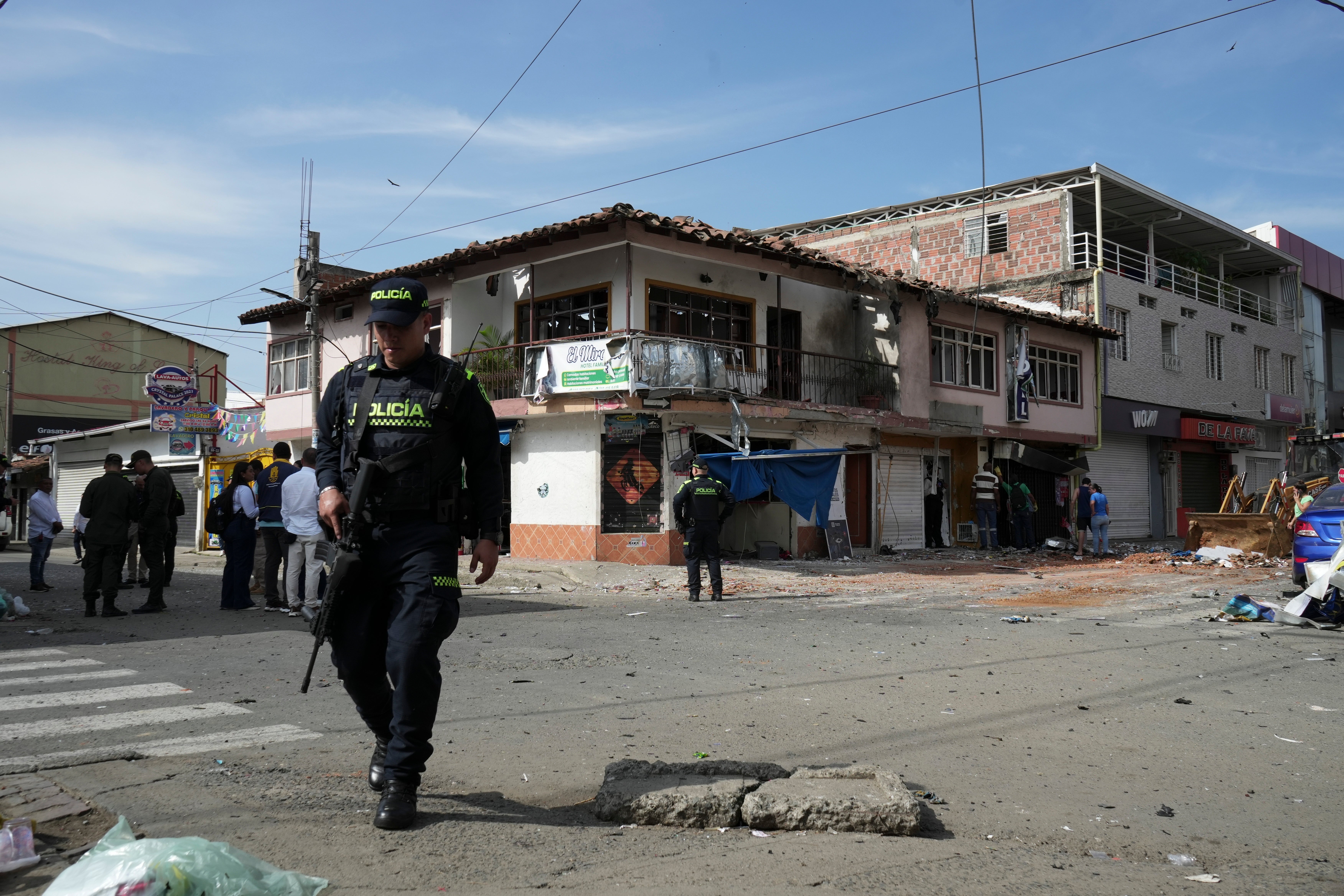Violence intensifies in southwest Colombia as FARC holdout group attacks police and military
Violence has intensified in southwestern Colombia with a bomb blast injuring six people in the city of Jamundi and an attack by insurgents on a police station in the rural town of Morales leaving at least two officers dead

Your support helps us to tell the story
From reproductive rights to climate change to Big Tech, The Independent is on the ground when the story is developing. Whether it's investigating the financials of Elon Musk's pro-Trump PAC or producing our latest documentary, 'The A Word', which shines a light on the American women fighting for reproductive rights, we know how important it is to parse out the facts from the messaging.
At such a critical moment in US history, we need reporters on the ground. Your donation allows us to keep sending journalists to speak to both sides of the story.
The Independent is trusted by Americans across the entire political spectrum. And unlike many other quality news outlets, we choose not to lock Americans out of our reporting and analysis with paywalls. We believe quality journalism should be available to everyone, paid for by those who can afford it.
Your support makes all the difference.Violence intensified in southwestern Colombia on Monday when a bomb blast injured six people in the city of Jamundi and an attack by insurgents on a police station in the rural town of Morales left at least two officers dead, according to police.
Colombia’s government attributed the attacks to the FARC-EMC a rebel group that broke off from the Revolutionary Armed Forces of Colombia and refused to sign a 2016 peace deal in which more than 14,000 rebels demobilized.
The group’s western faction walked away from a new round of peace talks with the government in April and has since staged a series of attacks on military and police, including a roadside bomb last Friday that killed an 11-year-old.
Elizabeth Dickinson, a Colombia analyst at the International Crisis Group, said Monday’s attacks show that the EMC’s western faction is trying to set itself apart by becoming “the only armed or criminal group in Colombia that is directly attacking the state.”
Dickinson said the FARC-EMC’s western front, which is led by commander Ivan Mordisco, could end up splitting from EMC groups in eastern Colombia that are still involved in peace talks with the government.
“The split within the EMC is real and is likely to be permanent,” she said. “We are headed towards a situation of atomization and fragmentation in the conflict which has pretty dramatic implications for civilians.”
With around 5,000 fighters the EMC is the third largest armed group in Colombia, behind the Gaitanista Self Defense Forces and the National Liberation Army.
Colombian President Gustavo Petro has tried to hold peace talks with Colombia’s remaining rebel groups since he was elected into office, under a strategy known as total peace.
The Petro administration has signed ceasefires with some of these groups and begun discussions on development programs and rural reforms.
Experts say the strategy has had mixed results.
While the ceasefires have reduced violence between the military and armed groups, crimes like kidnapping, extortion and the recruitment of children have increased as armed groups continue to strengthen their grip over rural communities and fight for the control of illegal businesses that were abandoned by the FARC after the peace deal. Rebel groups like the FARC-EMC also continue to profit from illegal mining and the drug trade.